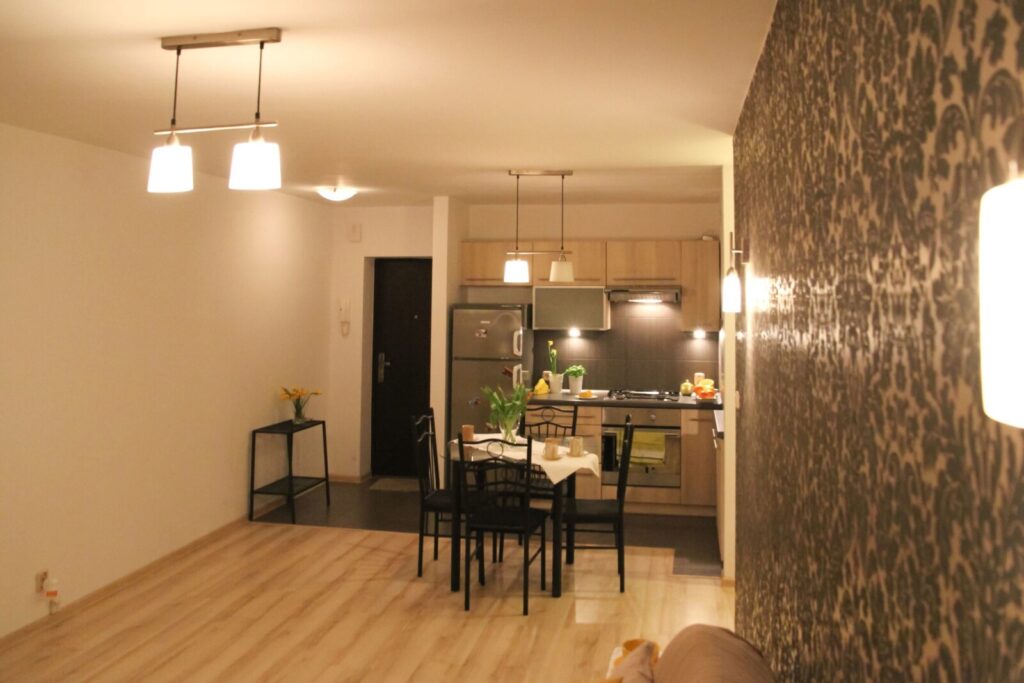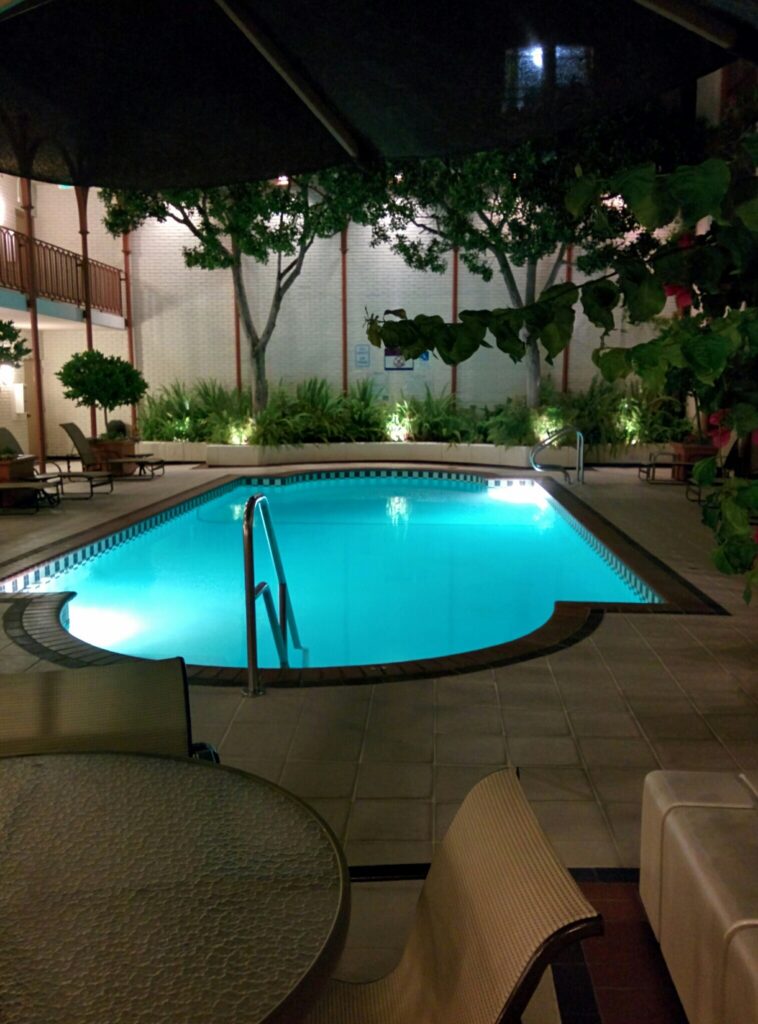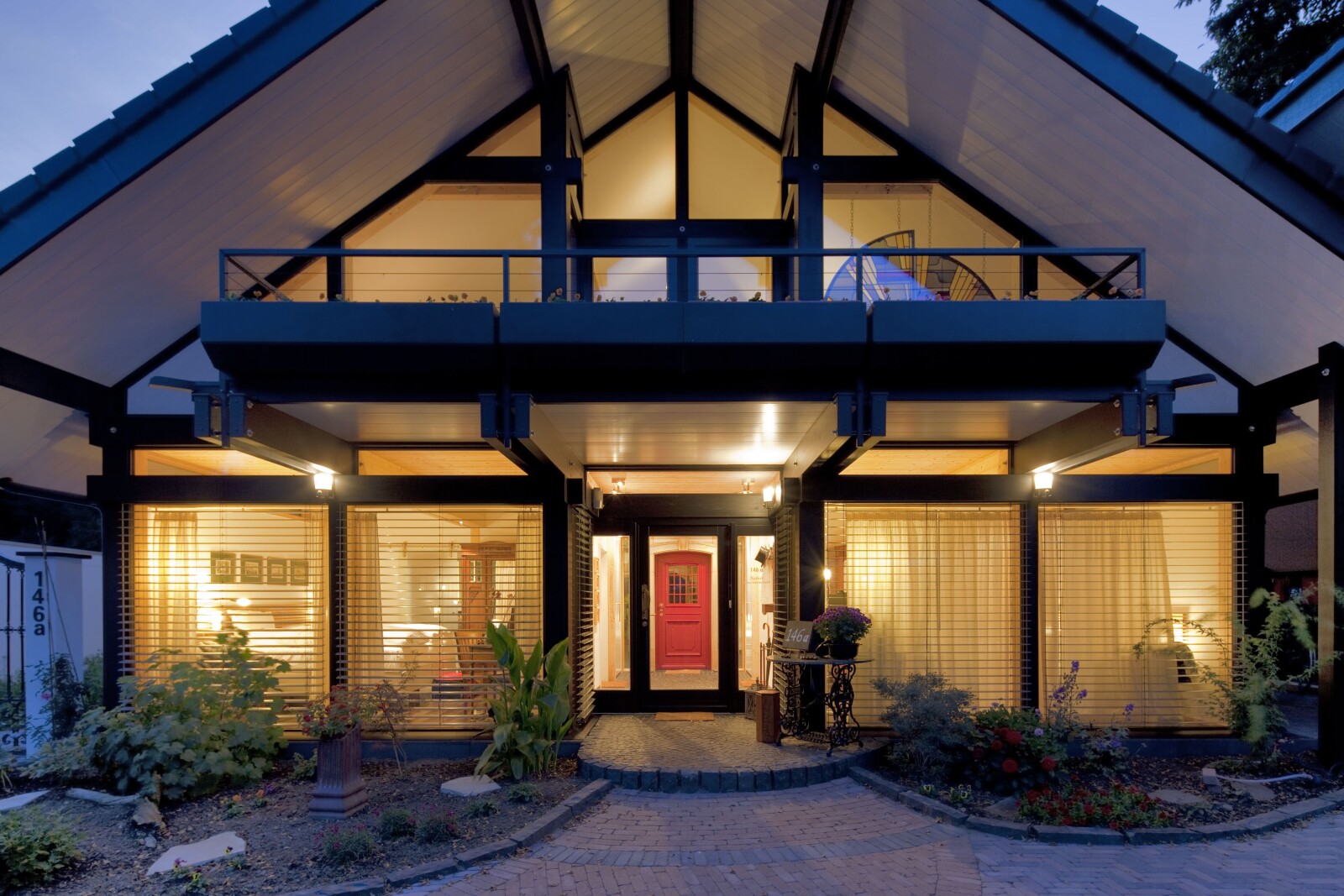I’ve never been a morning person, and I’ve never been able to readily transform from my bed into the kitchen and make a hot, filling breakfast for myself. I’ve always preferred sleeping in and then enjoying a leisurely brunch with mimosas, eggs benedict, and all the other accouterments accompanying such an event. When I was in college, this wasn’t too much of an issue.
However, now that I’m older (and supposedly wiser), it’s become apparent that sleeping late is not only an unproductive habit but it’s also one that might be impacting my health in several ways. And while there are plenty of reasons why humans should get more sleep—especially since we don’t sleep as well as we used to, thanks to all the modern conveniences around us—one reason stands out above all others: blue light. Let’s look at how blue light affects your sleep and what you can do about it.
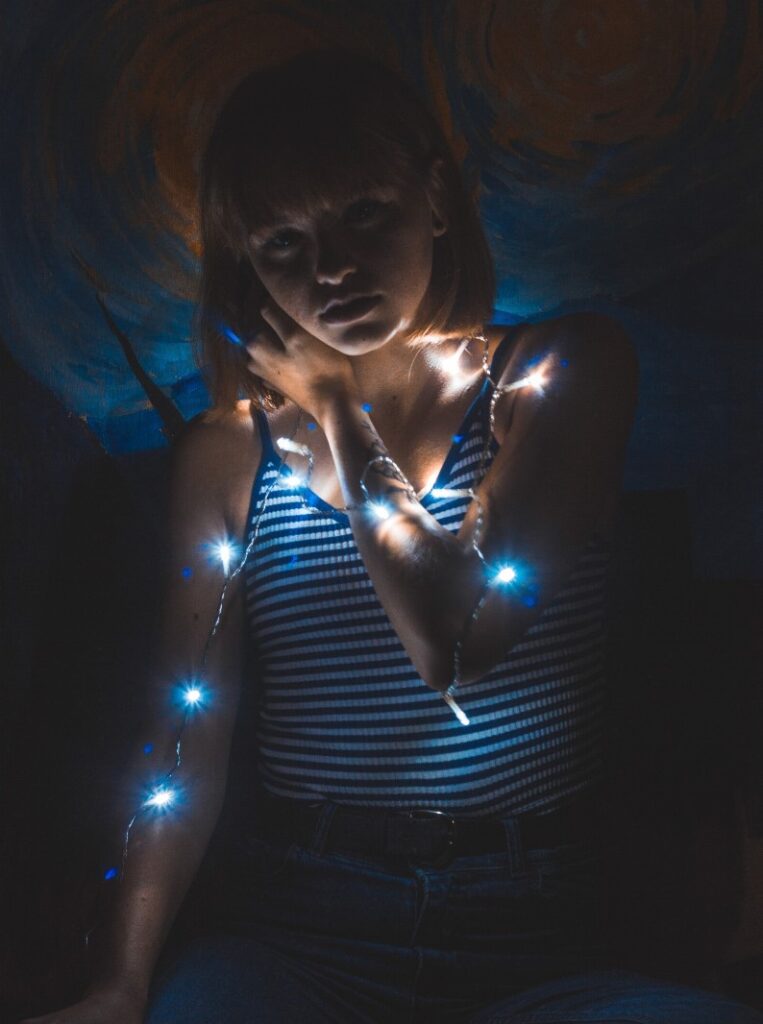
What is blue light?
Blue light is a type of light emitted from electronic screens, and it’s a form of visible light with a shorter wavelength than red and yellow, which means it can pass through your eye lens more easily. As you might have guessed, blue lights are found in most LED lamps and bulbs like those used in smartphones, computer monitors, and televisions.
But what is it about blue light that makes it so potentially harmful? And why should we even care about avoiding this light at night?
I thought artificial lights were bad for us?
You may have heard that artificial light can cause insomnia, headaches, and depression. But did you know it could also be a factor in cancer development?
Blue light’s ability to suppress melatonin levels means it’s not just the hours of darkness essential for sleep—it’s also our exposure to blue light during daytime hours and at night. For example, if your smartphone keeps you up at night, try putting it away 30 minutes before turning off your lights for bedtime (or just put down those bright-colored glasses).
How does blue light affect the body?
So how does blue light affect the body? Well, sunlight contains much blue light emitted by the sun. Since you’re reading this on a computer or phone screen, it also includes a significant amount of artificial blue light.
Blue light has been known to reduce melatonin production in the body. Melatonin is a hormone that helps regulate your sleep cycle and keep you asleep at night by reducing wakefulness. Its levels are highest at night and lowest in the morning—so when they’re suppressed, they can’t perform their job correctly. This can lead to insomnia or other sleep disorders such as delayed sleep phase disorder (DSPD).
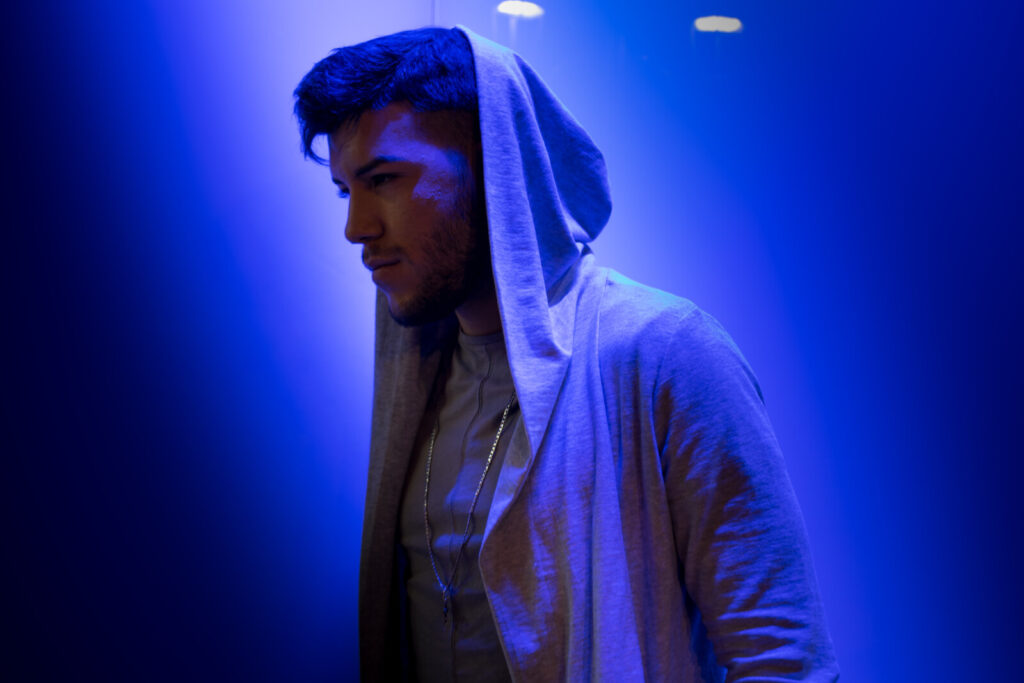
You might think that using your phone right before bed would help you fall asleep faster because it mimics sunlight—but studies show that’s not entirely true. Many people use their phones as an alarm clock at night!
How Does Blue Light Affect Sleep?
Blue light is so disruptive to sleep because it suppresses melatonin, the hormone responsible for regulating your internal clock.
Because of this, many people struggle to fall asleep after watching a movie on their phone or laptop in bed. The bright screen emits much blue light, making it harder for you to fall asleep.
The same happens when you use energy-efficient bulbs in your bedroom (like you probably do if you’re trying to save money). These bulbs use less energy than incandescent or halogen bulbs, but they still emit enough blue light to make it harder for us humans to get good rest at night.
How does blue light make you tired?
How does blue light make you tired? Blue light suppresses your body’s production of melatonin, a hormone that helps regulate sleep. When it’s time to wind down and fall asleep in the evening, our brains start producing more melatonin.
As we get closer to bedtime, our pineal gland—a small gland in the center of our brains—secretes more and more melatonin into our bloodstream. This chemical causes drowsiness by regulating how much we sleep; lower levels lead to fatigue, while higher levels keep us awake.
Blue light from devices like smartphones, tablets, and televisions interferes with this process by suppressing melatonin production in our bodies.
The effect is magnified when you use such devices before bedtime: “All screens emit some blue light, but as screens get brighter, they produce more blue light which can disrupt your circadian rhythm and make it harder for you to fall asleep at night,” Dr. Michael Howell told The Huffington Post UK in 2017
What can we do about this?
The easiest way to avoid blue light is to turn off your screens before bed. If you must look at a screen before bed, use an app like Twilight (iOS) or Iris (Android), which filter out blue light.
If you have trouble sleeping because of the brightness of lights in your room, consider installing blackout curtains or buying an eye mask. You could also try using a noise machine or white noise app if it’s too quiet in your house. This can help distract you from any noises that might wake you up at night—but be careful not to wear headphones while sleeping!
- Use good lighting: Many people have fluorescent bulbs in their homes because they’re cheap and don’t last long enough for it to matter much… but they’ve been linked with sleep problems due to the amount of blue light they produce! Try using a different kind of bulb instead—like LEDs—to get better quality lighting without sacrificing energy efficiency.
- Use weighted items: Weighted blankets are often used as therapy for children with autism spectrum disorders (ASD). ASD symptoms include difficulty falling asleep due to hyperarousal and anxiety. Some experts think weighted blankets for ASD treatment (including Temple Grandin) are practical tools for managing these symptoms because they provide deep pressure touch stimulation similar in sensation intensity when compared to swaddling infants, who may benefit from this sensory input due to increased activity levels associated with overstimulation.”
How about when it’s nighttime?
Blue light can affect your sleep at night, too. If you’re watching TV or using your computer or phone before bed, try using a blue light filter to shield yourself from the harmful effects of artificial light. Several apps can do this:
- F.lux has been around for a while and is available on Macs and PCs.
- Apple’s Night Shift lets you change the color temperature of your screen with just a swipe.
- Iris is another app that automatically adjusts the brightness and color temperature in response to the time of day.
- Twilight makes Windows 10 users’ computers behave more like an actual book by darkening their screens automatically when it’s time for bed (the latest version also features adjustable brightness levels).
What Devices Give Off Blue Light?
- Blue light can affect your sleep regardless of the source, but it’s more likely to cause problems when looking at a screen.
- Many devices emit blue light: TVs, smartphones, tablets, computers, and laptops. Many electronic devices have screens with a blue-ish tint that emits blue light as well as other colors of light.
- The American Medical Association has stated that “excessive exposure to high-energy visible (HEV) light in the evening hours can interfere with the production of melatonin” and that “an estimated 50% of Americans suffer from at least one type of sleep disorder”; however, not everyone is affected by this issue the same way.
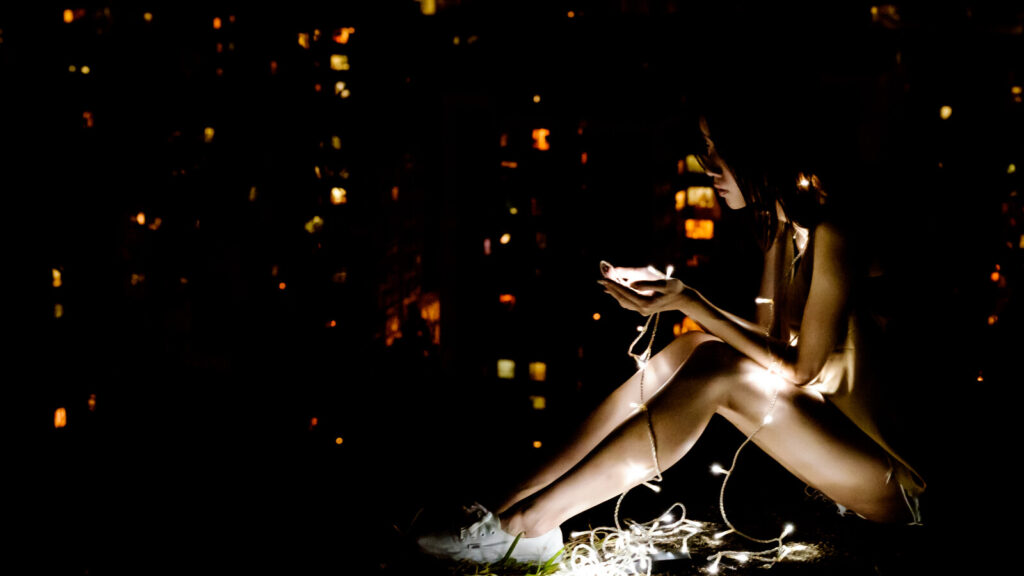
Stop using a device at least an hour before bed.
Generally, it’s best to stop using devices at least an hour before bed, giving your eyes enough time to adjust and allow for better sleep. Of course, this isn’t something you can do if you’re a night owl who needs to use your computer or phone after 10 PM to get through the day. If this is the case for you, take breaks from looking at screens throughout the day by staring into space (or into nature) whenever possible — don’t look directly at any light sources!
Go outside for a walk after dinner.
If you’re not already a regular exerciser, we have good news: it’s never too late to start. The benefits of exercise are well documented and diverse, so even if your main goal is to improve your sleep, there are plenty of other reasons to lace up those sneakers and head outside after dinner. Exercise has been shown to help regulate blood sugar levels in people with diabetes or prediabetes, lower cholesterol levels, reduce inflammation in the body (which can lead to reduced risk of heart disease), reduce anxiety and depression symptoms, and improve self-esteem.
In addition to its many health benefits, exercise has also been shown to improve sleep quality for adults with insomnia or other sleep disorders like restless legs syndrome (RLS). A study published in 2008 found that adults who exercised at least three times per week reported better sleep than those who did not exercise during the week before being surveyed.
The bottom line? If you want more restful slumber nights—and an overall healthier lifestyle—start going on walks after dinner!
Use good lighting, and avoid screens before bed.
- If you need to use a screen before bed, reduce the brightness and avoid blue light.
- Use a soft nightlight or white noise machine.
- Use a sleep mask if you’re sensitive to light or for those who have trouble falling asleep because of their partner’s snoring or tossing and turning. A sleep mask can also help eliminate disturbances from other people in your house who might be watching TV or playing video games late at night.
- If you have trouble falling asleep due to hot flashes, try using an oscillating fan that provides white noise as it blows your sheets around (and cools your body).
- Weighted blankets are great for relaxation, but don’t rely on them as a cure-all! They’re not recommended for everyone; check with your doctor before investing in one if you’ve never used one before.
Conclusion
By adopting a couple of good habits, you can make sure that blue light isn’t keeping you up at night. Blue light is all around us, but it doesn’t have to ruin your sleep. Making good decisions about what lighting and devices you use throughout the day—and night—can make a significant difference in how well you sleep.. For more ideas visit our Blog
